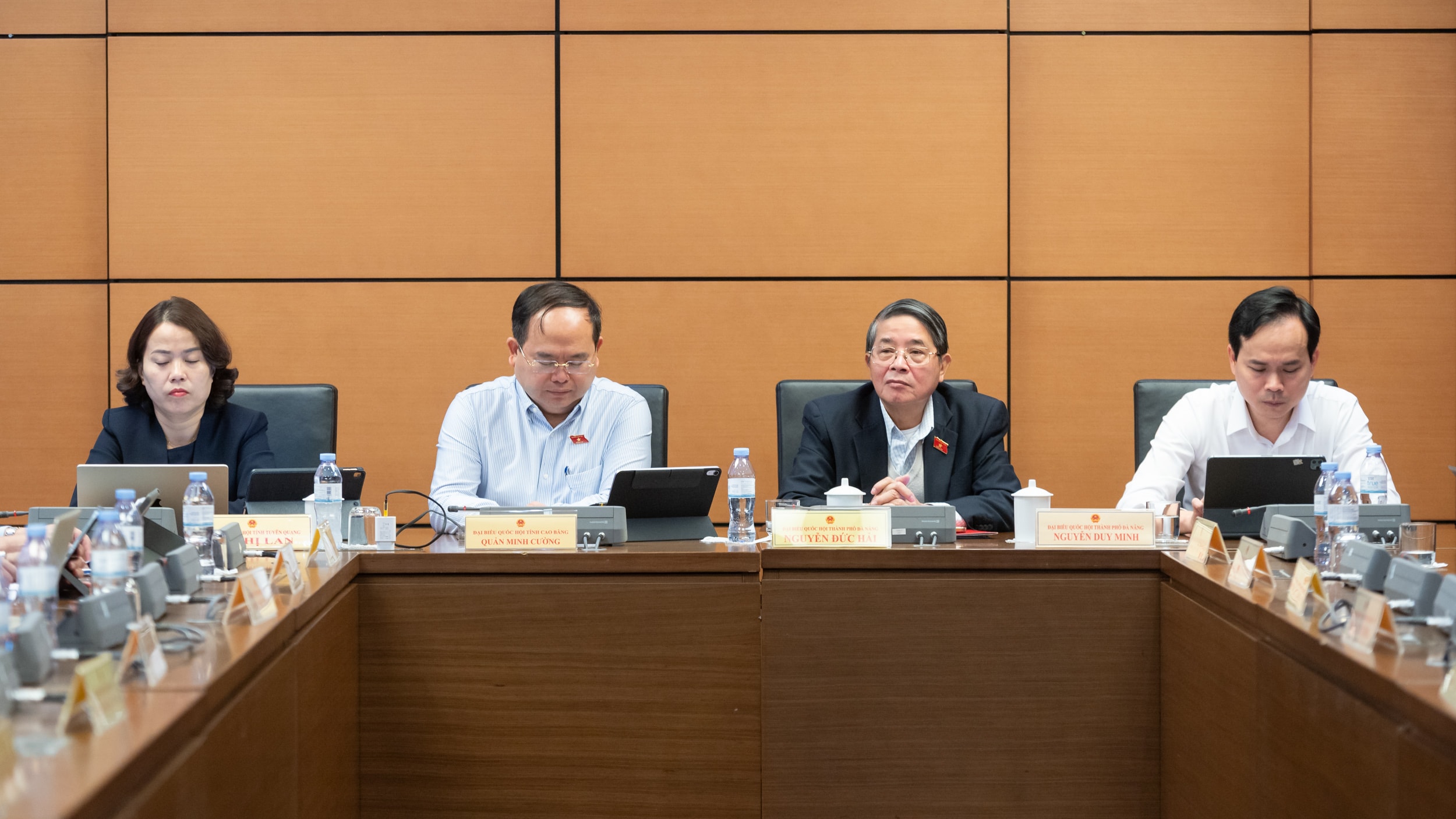
Increase resource concentration and ensure inter-sectoral coordination.
Discussing the National Target Program on Modernization and Improvement of Education and Training Quality for the 2026-2035 Period, National Assembly Delegate Doan Thi Le An (Cao Bang) raised the issue that although the education sector has made many efforts in recent years, the quality gap between regions is still large; digital infrastructure and facilities have not met the requirements of innovation; there is a shortage of teachers, especially in particularly difficult areas; vocational training and higher education have not yet provided enough human resources for key industries.
Therefore, the development of this national target program is extremely necessary to increase resource concentration, ensure inter-sectoral coordination, and create a breakthrough for the education system in the next decade. The submission and draft Resolution have provided a timeline for implementation, specific goals, and implementation resources.
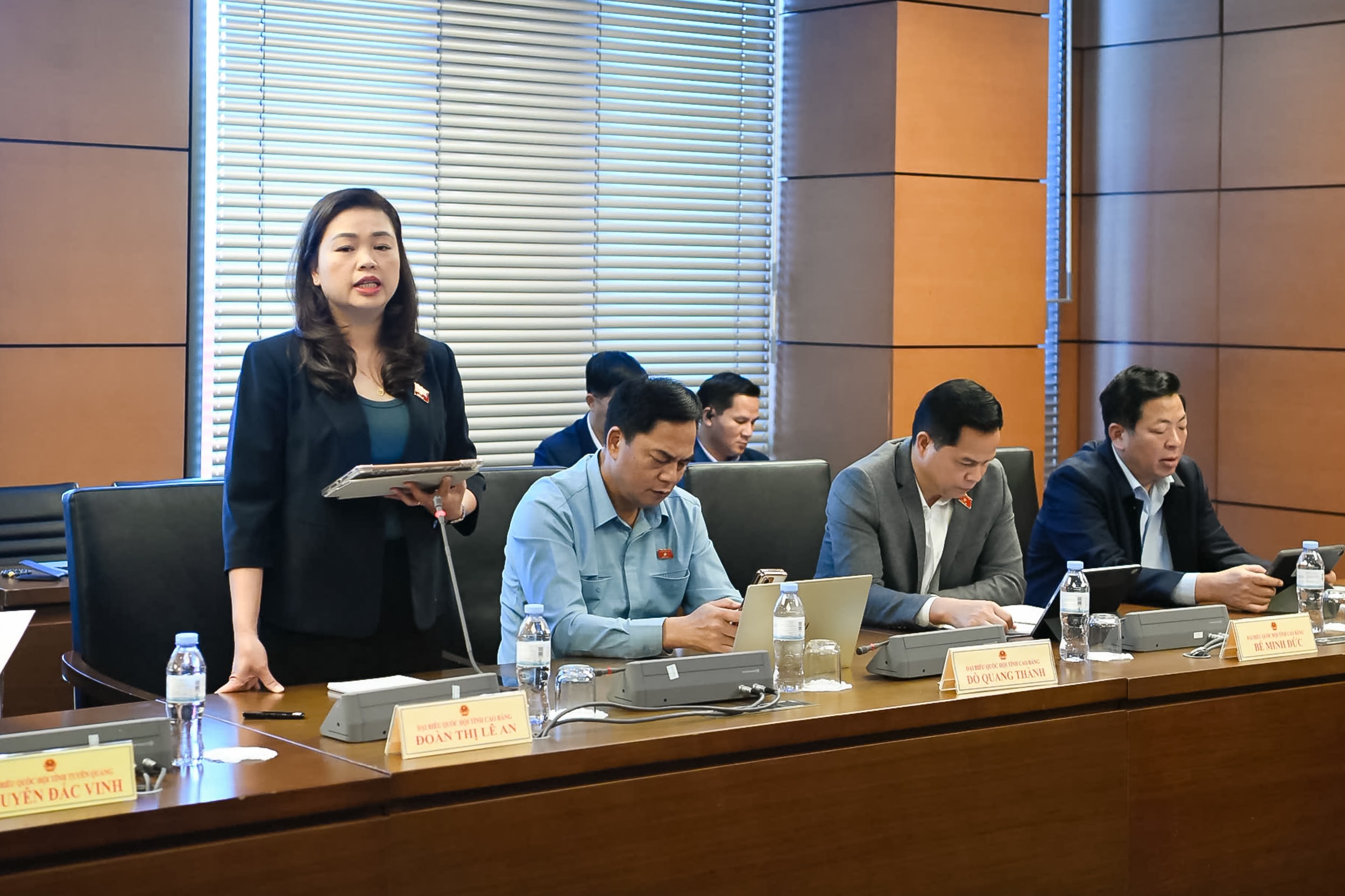
One of the objectives of the Program that the National Assembly Deputies are interested in is to gradually make English the second language in the national education system. By 2030, at least 30% of preschool and general education institutions will strive to pilot smart school models applying digital technology and artificial intelligence (AI) in management, teaching and learning, integrating STEM/STEAM, teaching natural sciences and STEM/STEAM in English.
By 2035, invest so that 100% of preschool and general education facilities have enough teaching equipment to implement making English the second language in schools.
This is a major orientation, demonstrating the determination to deeply integrate into the international community. Affirming this, according to delegate Doan Thi Le An, to achieve this goal, it is necessary to frankly assess the conditions and challenges regarding facilities, human resources and implementation environment.
Citing the actual conditions of Cao Bang, the delegate stated that in the province, nearly 70% of general schools, when evaluated, still do not meet the standards of technological equipment for foreign language learning. Many remote schools in ethnic minority areas do not have solid classrooms, so investing in functional rooms for English is almost impossible in the short term. Although the Internet has wide coverage, the speed is low and unstable, making it difficult to meet the requirements of building a digital language environment.
From this reality, delegates said that the target of 30% of preschool and general education facilities being able to teach integrated, natural or STEM/STEAM subjects in English by 2030 may be feasible in large provinces and cities, but "very challenging" in mountainous areas such as Cao Bang, Tuyen Quang, Lai Chau, Dak Lak... - where the physical facilities are not yet synchronized.
Emphasizing the current “bottleneck” is the lack of English teachers in many localities, delegate Doan Thi Le An pointed out that in the northern mountainous provinces (Cao Bang, Bac Kan, Dien Bien...), about 40-50% of English teachers have not yet reached the foreign language proficiency level according to the 6-level Competency Framework. In preschool and primary schools, the shortage of English teachers is even greater, due to the limited source of training for teachers at this level.
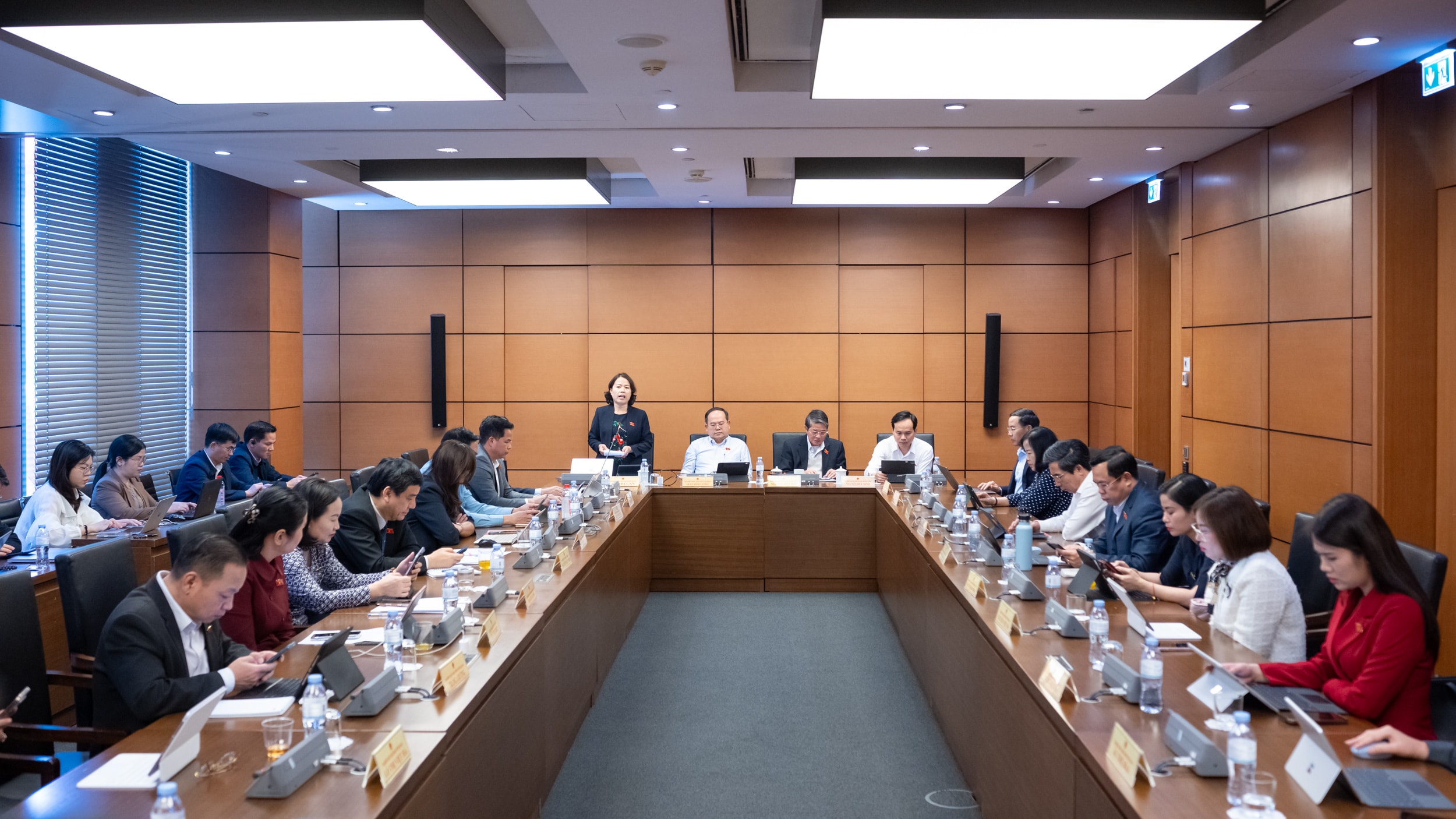
At the secondary level, the number of physics, chemistry, biology, information technology, and mathematics teachers who can teach in English is currently less than 3% nationwide; in Cao Bang, this rate is almost zero. In addition, high-quality foreign language teachers often choose urban or private schools with good incomes; the current incentive system is not strong enough to attract good teachers to remote areas.
Regarding the readiness of students, parents and language environment, according to delegate Doan Thi Le An, if in urban areas, the demand for learning English is very high, then in mountainous provinces, the percentage of ethnic minority students accounts for over 90%, Vietnamese is also the second language, so requiring English as the second language in schools is extremely challenging.
“Most provinces do not have an English-speaking environment in the community. If students only study 2-3 periods per week, it will be difficult for them to achieve the ability to study science subjects in English,” the delegate raised the issue.
However, the delegate affirmed that making English the second language in the education system is a "correct and urgent vision". To achieve the figure of 30% by 2030 and 100% by 2035, we need to invest heavily and synchronously; standardize the teaching staff; provide specific support for ethnic minority and mountainous areas; and have a roadmap suitable to the reality of each region and locality.
Delegates believe that with high political determination and strong enough policies, Vietnam can completely achieve this goal, contributing to improving the quality of human resources, meeting the requirements of international integration in the new period.
Review carefully to avoid having to make two sets of documents, two reports, and apply two mechanisms for the same content.
In her general assessment of the two national target programs on education and training, health care, and population, National Assembly Deputy Ly Thi Lan (Tuyen Quang) said that the draft Resolutions all reflected the spirit of innovation and breakthrough of Resolution No. 72-NQ/TW of the Politburo on a number of breakthrough solutions to strengthen the protection, care, and improvement of people's health and Resolution No. 71/NQ/TW of the Politburo on breakthroughs in education and training development.
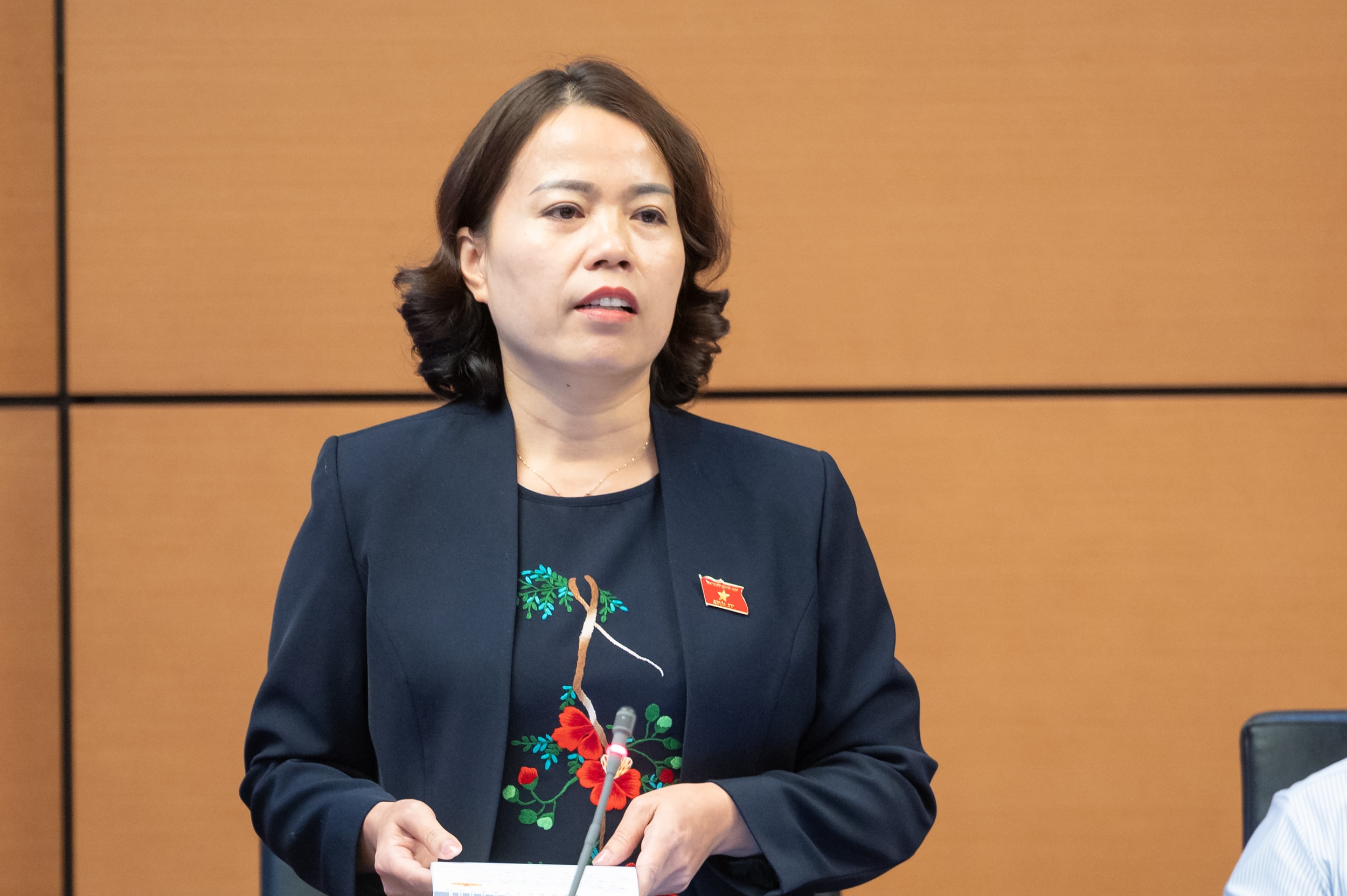
From the reality of implementing national target programs at the local level, delegate Ly Thi Lan also pointed out that the biggest problem in implementing programs at the grassroots level is the limited capacity to organize and implement, the ability to absorb capital, and the results have not been as expected.
In addition, the two national target programs are still heavily invested in infrastructure construction, while according to delegates, the capacity to establish, appraise and implement public investment at the commune level... is still facing many obstacles. Without specific solutions and program designs suitable to implementation conditions at the grassroots level, it will be difficult to implement effectively.
In addition to the National Target Programs being implemented, at this 10th Session, the Government also submitted to the National Assembly for approval the investment policy of a number of other National Target Programs. Therefore, delegate Ly Thi Lan suggested that the Government should direct ministries and branches to continue reviewing and comparing between the Programs to ensure that there is no duplication of activities or overlapping of tasks.
"If not carefully reviewed, when implementing these two national target programs at the local level, especially at the commune level, there will be a risk of having to prepare two sets of documents, two reports, and apply two mechanisms for the same content, making it very difficult to implement at the grassroots level," the delegate emphasized.
With the hope that the National Target Program on Health Care, Population and Development for the 2026 - 2035 period will be implemented synchronously, substantially and effectively, contributing to the good implementation of socio-economic development and people's health care goals, National Assembly Delegate Dang Thi Bao Trinh (Da Nang) suggested that among the beneficiaries, it is necessary to clarify who the "disadvantaged" group is, to avoid overlapping with other prioritized groups; at the same time, add people with disabilities to the beneficiaries.
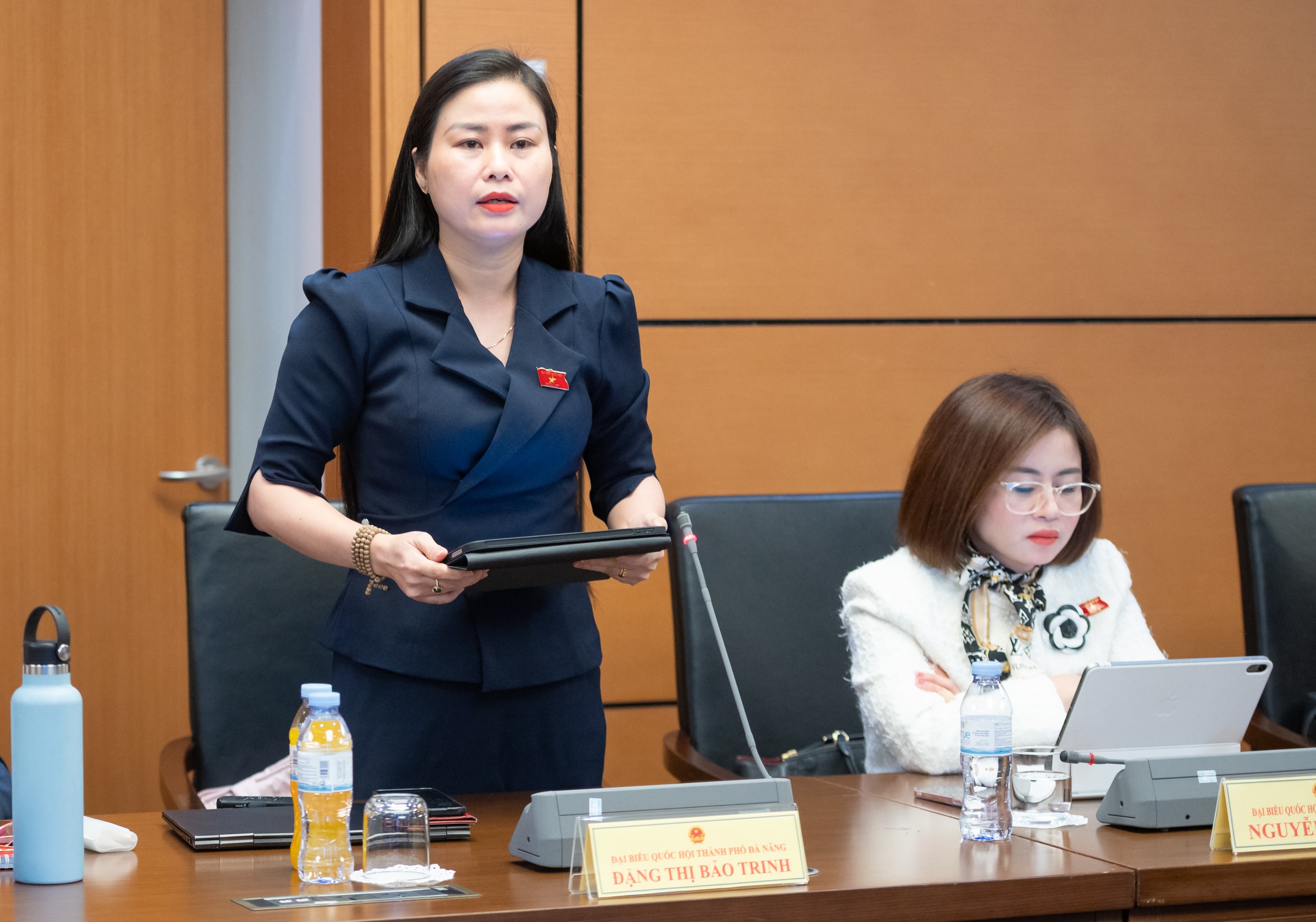
This ensures the allocation of resources in a targeted, transparent and consistent manner in implementation. At the same time, when the target is clearly identified, it will be easier for component projects to design appropriate support activities, thereby improving the feasibility and practical effectiveness of the program, especially in disadvantaged areas where support needs are often diverse and complex.
According to National Assembly Delegate Trang A Duong (Tuyen Quang), the priority beneficiary group needs to be expanded in accordance with the spirit of Resolution 72-NQ/TW, including pregnant women, children under 5 years old, etc. At the same time, it is proposed to add "ethnic minority areas and mountainous, border and island areas" to the priority areas.
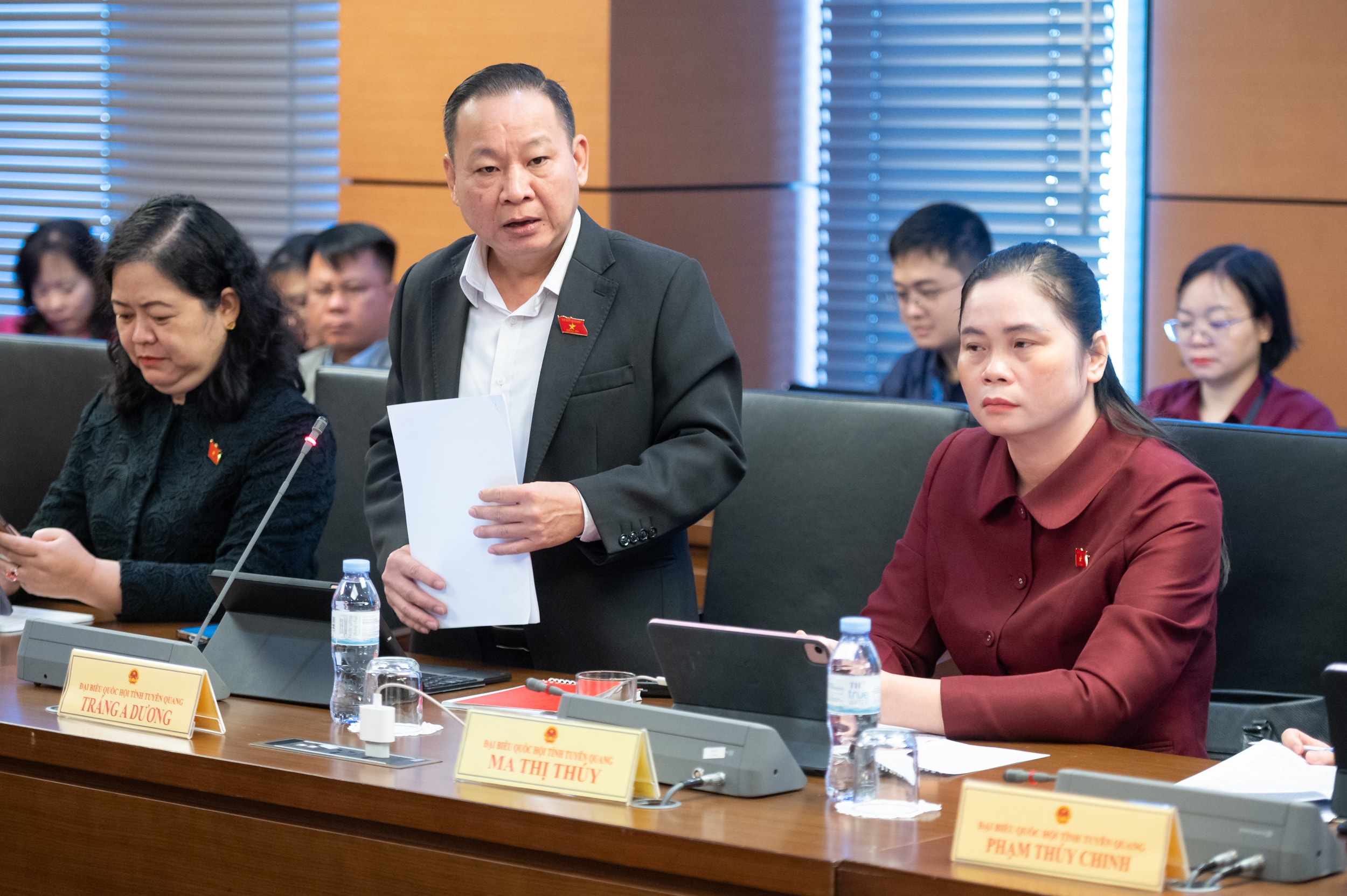
Regarding Project 3 of Sub-Project 1 on encouraging the birth of 2 children, delegate Dang Thi Bao Trinh noted that the replacement birth rate is currently decreasing mainly due to economic, educational, and working environment factors, not just due to lack of information or skills. Therefore, training and guidance activities, if not accompanied by specific solutions on economics, reproductive health care, and medical infrastructure, will be very difficult to be effective.
Therefore, it is recommended to clearly separate policy/institutional activities and investment/model support activities, and to add specific activities that can measure results, for example, applying digital technology to monitor population fluctuations, investing in pre-marital health check-ups and reproductive health care.
Source: https://daibieunhandan.vn/khi-co-quyet-tam-cao-va-chinh-sach-du-manh-se-som-dua-tieng-anh-thanh-ngon-ngu-thu-hai-10397019.html








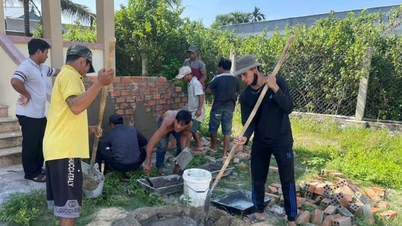
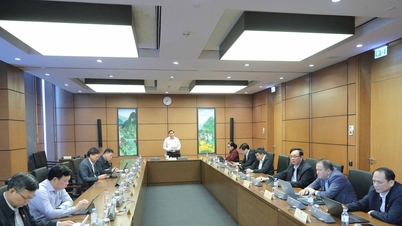


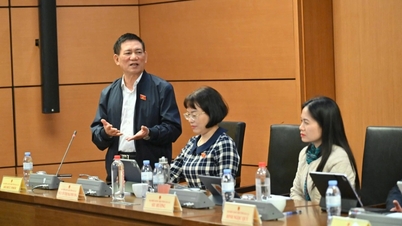




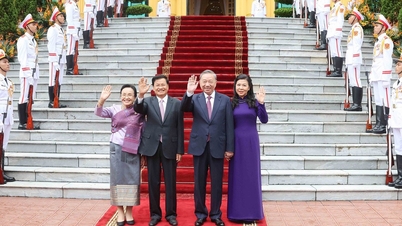

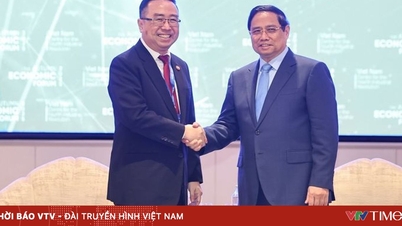

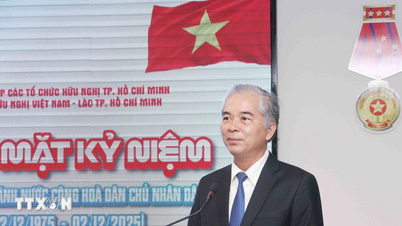









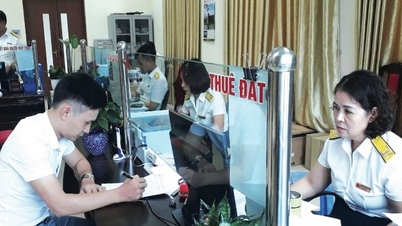



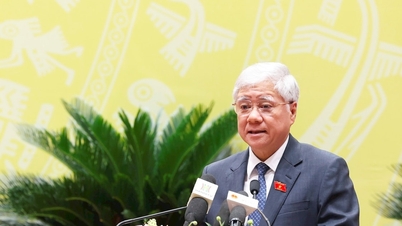













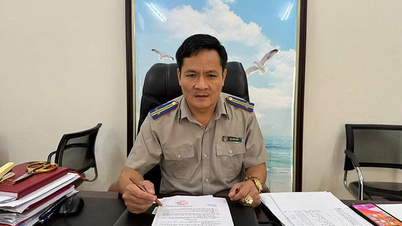





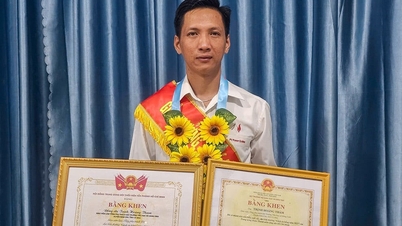

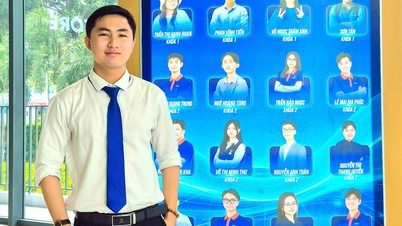



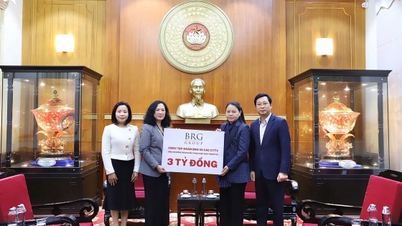




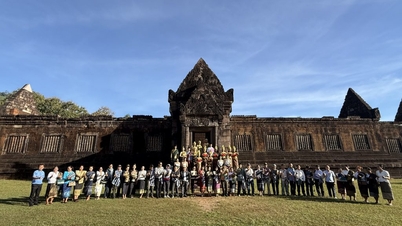















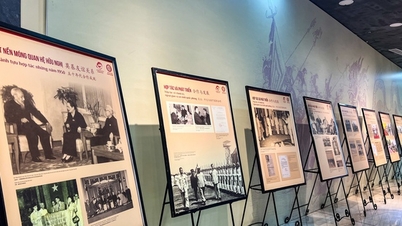
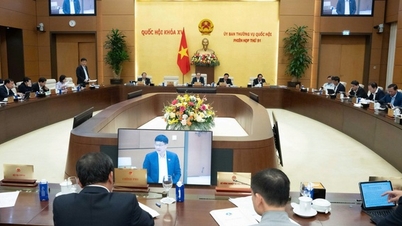
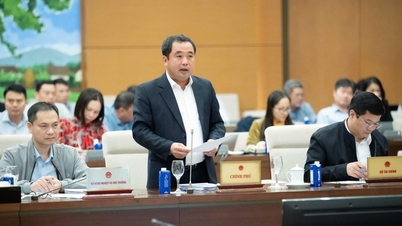
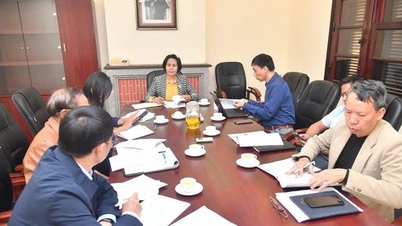
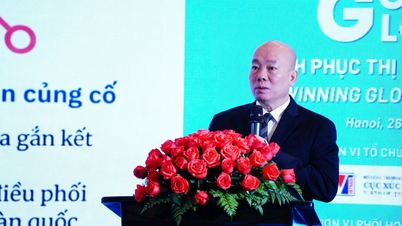

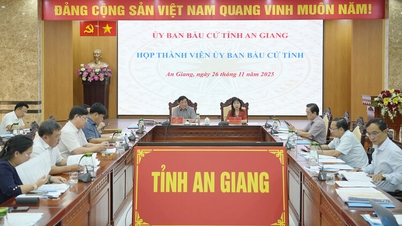


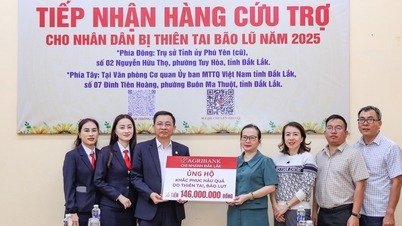




















Comment (0)